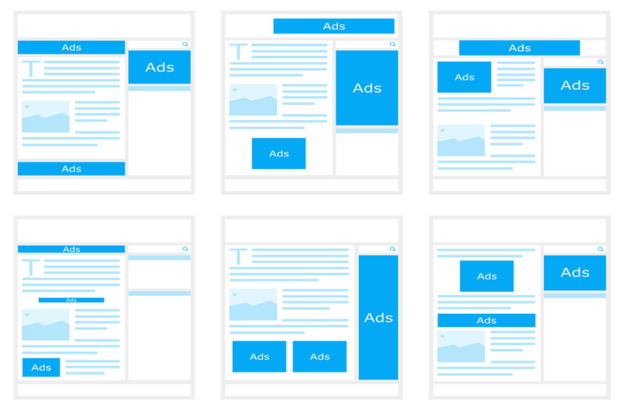Like them or not, buzzwords and jargon are commonplace in in the present day’s world, and that is very true within the fashionable office setting. Buzzwords might be helpful when used within the office, however ought to employers additionally use them in job postings as a way to draw expertise?
To attempt and discover out, an e-learning platform named Preply just lately surveyed 1,500 American employees to higher perceive the impact that buzzwords and jargon can have on the applying course of.
In quick, they discovered that using buzzwords and jargon in job postings could make a distinction in whether or not or not somebody applies for a job. Nearly 70% of surveyed respondents stated that using stylish language in a job posting positively influenced their choice to use for a place at an organization.
What are the most effective buzzwords employers ought to use to draw job seekers? Let’s discover out.
Buzzwords in job postings
As talked about above, a majority of job seekers in the end reply positively to buzzwords though not everyone seems to be impressed by them. The survey discovered that 1 in 5 job seekers have determined to not apply for a job because of using jargon or buzzwords in a job posting.
Listed under are each the most effective and worst buzzwords for employers to make use of in job postings:
The enterprise buzzwords probably to be pink flags for job seekers
- Rockstar
- Wear many hats
- Thick pores and skin
- Work laborious, play laborious
- Schedule TBD
- Urgently hiring
- Ninja
- Hit the bottom working
- Fast-paced setting
- Overachiever
The enterprise buzzwords least more likely to be pink flags for job seekers
- Proactive
- Empower
- Leverage
- Lots of perks and advantages
- Proven observe file
- Resilient
- Fun/Amazing/Unique firm tradition
- Sense of humor
- Passionate
- Competitive wage
So now that we’ve seen the most effective and worst buzzwords for job seekers, let’s take a minute to research what this implies.
When trying on the record that was probably to be pink flags, there are key phrases that allude to working extra (work laborious, play laborious, put on many hats, overachiever and schedule TBD). Job seekers appear to be turned off by phrases that indicate you’ll be working greater than what’s required. Employers can be clever to keep away from phrases like this in worry that good candidates are being scared away primarily based on the language within the job posting.
Urgently hiring and hit the bottom working additionally might indicate {that a} enterprise is brief staffed and {that a} potential rent can be anticipated to onboard at an accelerated tempo.
When trying on the phrases which might be least more likely to be pink flags, we see phrases that ought to encourage folks to use like “lots of perks and benefits” and “competitive salary”.
These are phrases that almost all job seekers prefer to see in a job posting.
Words like “proactive”, “empower” and “passionate” communicate to the tradition at an organization and are additionally nice phrases to incorporate in a job posting.
Employers can be clever to grow to be acquainted with the phrases probably and least more likely to alarm job seekers and alter their job postings as wanted.
Using buzzwords and jargon within the office
The use of enterprise buzzwords and jargon within the office also can have advantages on prime of touchdown a brand new job. The survey from Preply discovered that 7 in 10 American employees at the moment use buzzwords and jargon and 71% of these surveyed stated utilizing buzzwords makes them sound extra skilled and can assist in advancing their profession.
Many staff use buzzwords as a result of they see their boss or higher administration utilizing these phrases probably the most. 31% of American employees stated higher administration makes use of enterprise buzzwords and one other 24% stated their direct supervisor makes use of enterprise buzzwords regularly.
The most incessantly used enterprise buzzwords:
- Win-win
- Culture (e.g., “Company culture”)
- ASAP (as quickly as doable)
- Think exterior the field
- Moving ahead/Going ahead
- Circle again
- It’d on my radar
- On the identical web page
- Bring to the desk
- New regular
While utilizing buzzwords and jargon can assist you sound extra skilled, some phrases and phrases can have the other impact. Nearly 20% of respondents stated that they dislike listening to buzzwords and jargon.
Employees must be conscious when utilizing any of the phrases listed under as they’re amongst probably the most hated enterprise buzzwords and jargon in America.
- New Normal
- Culture (e.g., “Company culture”)
- Circle again
- Boots on the bottom
- Give 110%
- Low-hanging fruit
- Win-win
- Move the needle
- Growth hacking
- Think exterior the field

As you will have observed there may be some overlap with phrases which might be among the many mostly used but additionally probably the most annoying. There is a fantastic line between wanting to make use of language that’s line with what your colleagues are utilizing and language that annoys them. Because of this you will need to be conscious of the phrases that you just use and how folks understand them.
Buzzwords which might be the least more likely to annoy a colleague:
- At the tip of the day
- Debrief
- Sweep the flooring
- SMB (Small and mid-size enterprise)
- Table this
- B2C (Business-to-consumer)
- Blue sky pondering
- Ideate
- Game changer
- Teamwork/teambuilding/workforce gamers
Why the language you employ issues
Does utilizing jargon and enterprise buzzwords make communication simpler or harder?
That reply may rely upon who you ask. Many American employees use buzzwords as a way to speak extra successfully and to additionally sound extra skilled and superior of their profession.
For others using buzzwords might be complicated and deter somebody from interacting with colleagues or from even making use of for a job within the first place.
Whichever aspect of the argument you fall on, attempt to be conscious of the way you talk with colleagues transferring ahead because the phrases you employ have a direct influence on the way in which you might be perceived.
This visitor put up was authored by Matt Zajechowski

Matt is keen about language, storytelling and speaking effectively with others.








